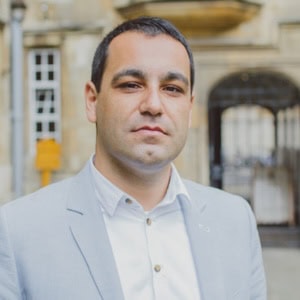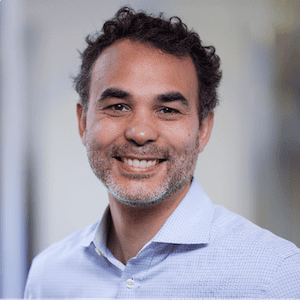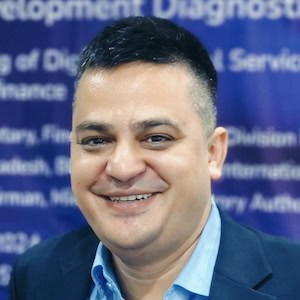-
Low Tech, High Impact: An Affordable, Hand-Powered Innovation Aims to Boost Food Production in Africa
For many global development players, high-tech innovations are the go-to solution for challenges in emerging markets. But according to Taylor Quinn of JUST, Inc., low-tech approaches can be even smarter. He discusses the promising potential of locally made and hand-powered machines in emerging economy value chains, and explores how JUST is using one such device to improve food security, increase access to quality nutrition and promote entrepreneurship in Liberia.
- Categories
- Social Enterprise, Technology
-
Beyond Inclusion: How Mission-Based Small Business Lenders are Evolving Their Definition of Impact
While microfinance institutions have grown rapidly around the globe, so too has economic inequality in developed countries. More than two decades ago, Accion in the U.S. and Opportunity Fund responded by adapting their microlending model from low-income markets to the United States. Gina Harman and Luz Urrutia, the respective CEOs of those two organizations, share new research on small loans have impacted revenues and profits for borrowing entrepreneurs, most of whom lacked the financing and resources they needed to start or grow their businesses.
- Categories
- Uncategorized
-
Step by Step Credit: Empowering the Unbanked through Progressive Finance
Despite notable progress in the financial inclusion sector, widespread, permanent change remains elusive. The good news, says Aristotle Socrates at Juvo, is that not only is this change possible, but everything we need to make it happen already exists. In fact, it might be as easy as setting aside long-held assumptions about the role of wealth and income in establishing credit. He outlines how improved data infrastructure is connecting lenders to creditworthy customers, producing big gains for both providers and the financially excluded in the developing world.
- Categories
- Finance, Telecommunications
-
Turning Intentions into Action: How to Boldly Implement Gender Lens Investing
There is strong evidence around the business case for investing in women, yet many asset managers and impact investors remain unsure about how to integrate a gender lens into their organization’s investment strategy. Though the process can take time to implement effectively, and will differ from institution to institution, David Venn offers several key questions that can help investors take the first step.
- Categories
- Investing, Social Enterprise
-
Looking Past the Buzz: Here’s How to Make Blockchain a Pragmatic Force for Good
Blockchain is often associated with extreme wealth and a disregard for environmental realities, such as electricity use. But Will Szal of Regen Network holds a different view: one that sees the technology's potential to offset carbon emissions and transform the lives of the next billion, particularly the one-fourth of the world's population employed in agriculture. He outlines some ways that blockchain could reach its full potential, for the benefit of the environment and the global poor.
- Categories
- Agriculture, Environment, Technology
-
The Economic Lives of Sex Workers: Can Financial Inclusion Offer Women a Path Out of the Sex Trade?
True financial inclusion involves reaching marginalized workers, and few are more marginalized than sex workers. Like everyone, these workers have financial needs and goals - including, for many, the goal of finding a safer livelihood. Daryl Collins, CEO of BFA, walks through the revenues and expenses of a sex worker in Ghana to show how access to financial services can impact sex workers – and why mainstream providers need to see the value in this overlooked population.
- Categories
- Uncategorized
-
Home Solar + Microfinance: Mitigating Risks and Maximizing Rewards
The social impact of home solar systems in off-grid villages has shown itself to be broader than initially thought. But while social enterprises continue to roll out new forms of solar, financing their purchase can put these innovations out of reach for the low-income households that need them most. Mark Roesink of Oikocredit shares how weaving responsible microlending into the solar industry could generate greater impact for energy access in emerging markets like India and Kenya.
- Categories
- Energy, Social Enterprise
-
Women Leaders, Women Lenders: Why Impact Investing Should Follow Microfinance’s Lead on Female Empowerment
Women have been an integral part of microfinance since the very beginning. But though the percentage of women in top leadership positions in microfinance institutions is high compared to the rest of the global banking sector, it’s still lower than women’s proportion of the overall population – and far lower than the percentage of female clients served by these institutions. Abiskar Shrestha, a senior investment officer at MicroVest Capital Management, explores how the sector can boost female leadership – and how investors can help.
- Categories
- Investing










